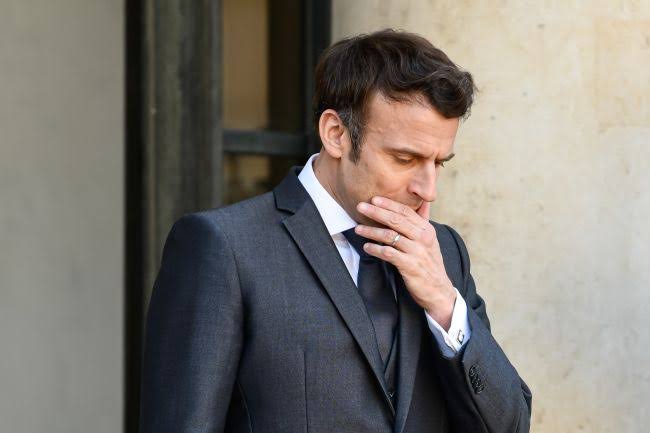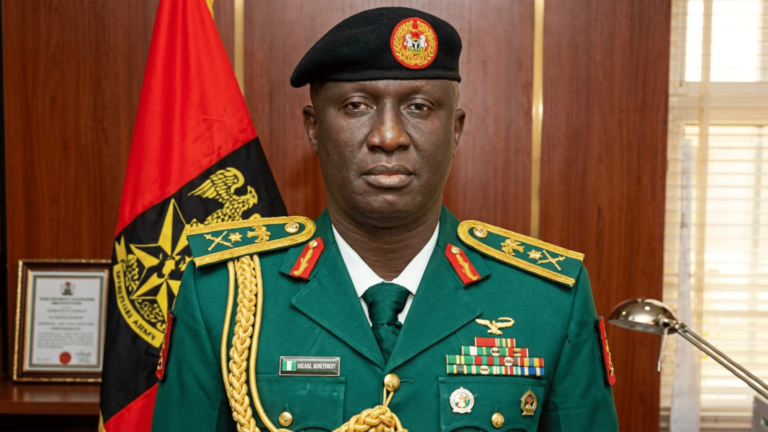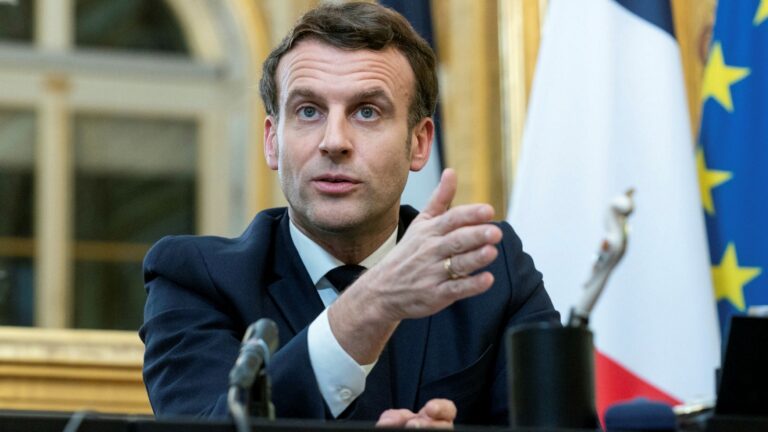
France and Europe must cut through bureaucratic obstacles for essential artificial intelligence (AI) initiatives to remain competitive with global powers such as the United States and China, stated President Emmanuel Macron on Monday, February 10, during the opening of a global summit focused on the technology.
Regarding AI initiatives, “we will implement the Notre Dame de Paris strategy,” which enabled France to reconstruct the iconic cathedral within five years following its destruction in a 2019 fire, Macron informed an audience that included leaders from the tech industry and political figures at the Grand Palais in Paris. “We demonstrated to the world that when we set a definitive timeline, we can achieve results,” he remarked, speaking entirely in English.
“You make the decisions, you simplify all the processes, and someone takes charge,” he continued, indicating that this approach would extend to data centers, approvals for AI products to enter the market, and enhancing business appeal.
Co-hosted with Indian Prime Minister Narendra Modi, the Paris summit seeks to establish a framework for regulating the emerging sector, as global powers compete to assume leadership roles in this rapidly evolving technology.
Read more: European AI start-ups Mistral and Helsing join forces: ‘In AI, Europeans have every chance’
Prominent figures at the event noted that while artificial intelligence has the potential to significantly enhance global trade in the future, it is currently exacerbating gender pay inequalities. Ngozi Okonjo-Iweala, the head of the World Trade Organization, indicated that her team estimated that “near universal adoption of AI… could boost trade by as much as 14 percentage points” from its existing trajectory. However, she cautioned that the global “fragmentation” of regulations concerning technology and data flows might lead to a contraction in both trade and economic output.
In the workplace, AI is primarily displacing workers in clerical roles, which are predominantly occupied by women, according to Gilbert Houngbo, the head of the International Labour Organization. This trend poses a risk of widening the gender pay gap, despite evidence suggesting that AI is creating more jobs than it eliminates.
Macron’s initiative to emphasize French competitiveness included a commitment to invest €109 billion ($113 billion) in AI over the coming years. He also pointed to France’s long-standing nuclear power infrastructure as a significant advantage, offering a clean and scalable energy source necessary for the extensive processing demands of AI.
“I have a good friend across the ocean who says ‘drill, baby, drill’,” Macron remarked, seemingly referencing US President Donald Trump’s support for fossil fuels. “Here, we don’t need to drill; it’s plug, baby, plug!” he added.
The $500 billion US “Stargate” initiative, spearheaded by OpenAI, alongside the rise of the efficient and cost-effective Chinese startup DeepSeek, has highlighted the technical hurdles and entry costs for nations striving to stay competitive. European Commission President Ursula von der Leyen is anticipated to provide additional insights on EU competitiveness on Tuesday.
Global governance challenges persist. However, President Macron’s pro-business enthusiasm has faced criticism, particularly following reports of a leaked draft of the summit’s concluding statement, which allegedly omits any reference to the potential risks associated with AI. Max Tegmark, president of the Future of Life Institute in the US, remarked that the draft “neglects to address these dangers or offer tangible proposals to ensure that these powerful systems remain manageable and beneficial.”
“This troubling oversight reflects a fundamental misapprehension of the science and could lead to catastrophic outcomes,” he stated.
In the short term, media sources indicate that neither the UK nor the US intends to endorse the final declaration in its current form.
The outcomes of France’s AI diplomacy will be revealed on Tuesday, when political leaders from approximately 100 nations convene for a plenary session, featuring prominent figures such as Modi, Vance, Zhang, and von der Leyen.
France aspires for governments to make voluntary pledges to promote sustainable and environmentally friendly AI. However, reaching a consensus may be challenging among the diverse blocs of the European Union, United States, China, and India, each with distinct priorities regarding technological advancement and regulation.



